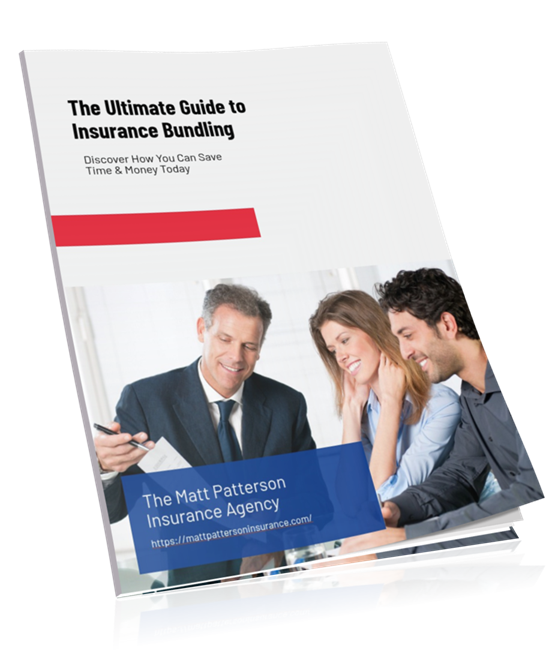Retirement planning for freelancers and gig workers requires a tailored approach. Traditional employer-sponsored plans are often unavailable, making it essential to understand alternative strategies when it comes to New Braunfels retirement planning.
Financial independence is a cornerstone of the gig economy. Many people rely on flexible work arrangements, which makes financial planning in New Braunfels extremely important for gig and freelance workers.
- Unique challenges arise for self-employed individuals in retirement.
- Inconsistent income streams complicate budgeting and savings efforts.
- Lack of employer benefits can leave gaps in essential coverage like health insurance and retirement funds.
Navigating these complexities is crucial. Developing a comprehensive plan ensures that freelancers and gig workers can achieve long-term financial security and enjoy their retirement years.
Understanding the Gig Economy
The gig economy refers to a labor market characterized by short-term, flexible jobs often mediated through digital platforms. This sector has seen significant growth, reshaping the traditional workforce landscape.
Characteristics of Freelancers and Gig Workers
- Independence: Freelancers operate independently, managing their own businesses.
- Flexibility: They choose when and where to work, allowing for a customizable work-life balance.
- Diverse Skill Sets: Many gig workers possess varied skills, enabling them to take on multiple roles across different industries.
Types of Gig Work Income
Gig work income can be categorized into two types:
- Supplementary Income: Earnings from freelance projects that enhance primary income sources.
- Primary Income: Full-time earnings derived solely from gig work, which often requires a more stable income strategy.
The Financial Needs of Freelancers and Gig Workers
Understanding the financial needs of gig workers is crucial for long-term stability. Here are key considerations:
Matching Gigs to Specific Financial Goals
- Identify your income requirements based on personal and professional aspirations.
- Align your projects and clients with your financial objectives, ensuring a sustainable income stream.
Importance of Creating a Budget
- A tailored budget helps manage variable income effectively.
- Track monthly earnings and expenses to adjust as necessary, preparing for leaner months.
- Include savings for retirement and unexpected expenses within your budget framework.
Establishing clear financial goals enables freelancers to navigate their unique economic landscape. This proactive approach fosters resilience against the inherent uncertainties of gig work.
Retirement Savings Options for Freelancers
Freelancers and gig workers have access to several retirement savings options tailored to their unique financial situations. Understanding these accounts can enhance your retirement planning for freelancers and gig workers.
1. Traditional IRA
- Contributions are made with pre-tax dollars.
- Allows tax-deferred growth until withdrawal.
- Ideal for those expecting to be in a lower tax bracket during retirement.
2. Roth IRA
- Contributions are made with post-tax income.
- Offers tax-free growth and penalty-free withdrawals of original contributions.
- Beneficial for individuals who anticipate being in a higher tax bracket during retirement.
3. Solo 401(k)
- Designed specifically for self-employed individuals.
- Allows both employee and employer contributions, maximizing your savings potential.
- Contribution limits up to $61,000 annually (excluding catch-up contributions), making it one of the most powerful options available.
4. SEP IRA (Simplified Employee Pension)
- Enables contributions of up to 25% of net self-employment income, with an annual cap of $61,000.
- Simplicity in setup and maintenance makes it attractive for freelancers with minimal administrative burdens.
- Employers must contribute equally for all eligible employees, which is essential if you have a team.
Understanding these retirement savings options for self-employed workers is crucial. Each account has distinct features that cater to different financial goals and circumstances within the gig economy. Choosing the right combination can significantly impact your ability to secure financial independence in retirement.
Strategies for Retirement Planning in the Gig Economy
Retirement planning strategies for freelancers are essential for ensuring financial security in later years. Consider these key approaches:
Start Early with Regular Contributions
- Establish a habit of contributing to retirement accounts as soon as you begin earning income.
- Even small, consistent contributions can compound over time, leading to significant savings.
Best Practices for Managing Gig Income
- Track your income meticulously to identify patterns.
- Set aside a percentage of each paycheck specifically for retirement savings.
- Create a separate savings account dedicated to retirement, preventing temptation to use those funds for immediate expenses.
Prioritize IRAs, Especially Roth IRAs
- Roth IRAs allow tax-free growth and qualified withdrawals, making them an attractive option for self-employed individuals.
- By prioritizing contributions to a Roth IRA, you benefit from tax advantages that can enhance your long-term savings.
- Consider maxing out contributions to IRAs before exploring other investment vehicles.
Implementing these self-employed retirement savings strategies allows freelancers and gig workers to take control of their financial futures.
Estate Planning Considerations for Freelancers
Estate planning is crucial for freelancers and independent contractors. It ensures your assets are distributed according to your wishes, providing security for loved ones and financial stability. Given the unpredictable nature of gig work income, effective estate planning can help manage risks associated with self-employment.
Key components of an estate plan include:
- Wills: A legal document that outlines how you want your assets distributed after your death. It can also appoint guardians for dependents.
- Trusts: These allow you to transfer assets while maintaining control over them during your lifetime. Trusts can help minimize taxes and avoid probate, ensuring a smoother transition of wealth.
Freelancers should consider their unique circumstances when developing an estate plan. This includes:
- Identifying Assets: Document both physical (e.g., equipment) and intangible assets (e.g., client lists, intellectual property).
- Insurance Coverage: Evaluating life insurance options to protect beneficiaries.
- Updating Plans Regularly: Life changes may impact your estate plans. Regular reviews ensure they reflect current wishes.
Establishing an effective estate plan provides peace of mind, allowing freelancers to focus on their careers without undue stress about the future.
Creating an LLC for Gig Work
Creating an LLC (Limited Liability Company) can be a strategic move for freelancers and gig workers. This business structure offers several advantages:
- Liability Protection: An LLC separates your personal assets from your business liabilities. In the event of legal issues or debts, your personal belongings remain protected.
- Credibility: Operating as an LLC enhances your professionalism. Clients often view LLCs as more trustworthy compared to sole proprietorships.
- Tax Flexibility: An LLC can choose how it wants to be taxed—either as a sole proprietorship or as a corporation. This flexibility allows you to optimize your tax situation.
- Longevity: Unlike sole proprietorships, which may dissolve upon the owner’s death, an LLC can continue to exist even if ownership changes. This ensures ongoing operations and potential business value for future generations.
Protecting your personal finances while fostering a sustainable business can lead to enhanced financial stability in the long run.
Keeping Your Personal and Business Finances in Check This New Year
Retirement planning is crucial for freelancers and gig workers. Implementing the strategies discussed can lead to financial independence and security. Here are some practical steps to consider:
- Set Clear Financial Goals: Define what retirement looks like for you and how much you need to save.
- Automate Savings: Make contributions to retirement accounts automatic to stay consistent.
- Review Your Budget Regularly: Adjust your budget to reflect changing income streams and expenses.
- Educate Yourself on Investment Options: Understand the benefits of Traditional IRAs, Roth IRAs, Solo 401Ks, and SEP IRAs.
Building a solid financial foundation requires diligence. Each small step contributes to long-term financial security. As a freelancer or gig worker, taking control of your retirement planning today will pay dividends in the future. Embrace these strategies to secure your financial well-being and create a sustainable path toward retirement.
FAQs
What is retirement planning for freelancers and gig workers?
Retirement planning for freelancers and gig workers involves creating a financial strategy to ensure financial independence during retirement. It addresses the unique challenges faced by self-employed individuals, such as variable income and lack of employer-sponsored retirement plans.
What are some common types of gig work income?
Gig work income can be categorized into supplementary income, which serves as an additional source of earnings alongside a primary job, and primary income, where freelancing or gig work is the main source of livelihood.
What retirement savings options are available for freelancers?
Freelancers have several retirement savings options including Traditional IRA, Roth IRA, Solo 401(k), and SEP IRA. Each option has different tax implications and contribution limits that cater to the needs of self-employed individuals.
Why is it important for freelancers to create a budget?
Creating a budget tailored to variable income streams is crucial for freelancers as it helps in setting realistic financial goals, managing expenses effectively, and ensuring that they can consistently contribute to their retirement savings.
How can forming an LLC benefit freelancers?
Forming an LLC can provide freelancers with liability protection, separating personal assets from business liabilities. Consulting a reliable New Braunfels insurance agent can also add credibility to their business and may offer tax advantages that can contribute to long-term financial security.
What are key components of an estate plan for freelancers?
Key components of an estate plan include wills and trusts. These documents help ensure that your assets are distributed according to your wishes after your passing, which is particularly important for independent contractors who may not have traditional inheritance structures in place.







